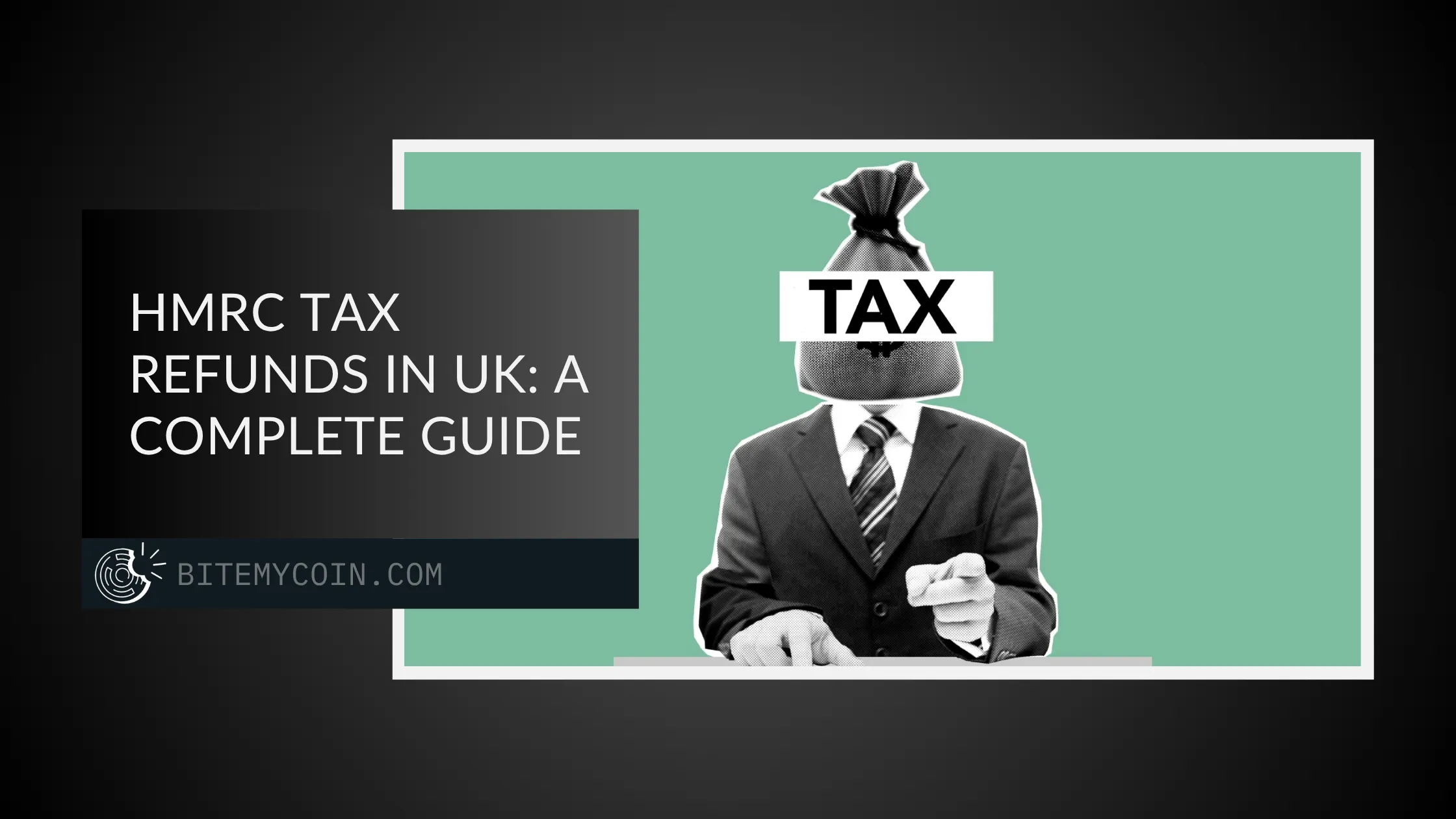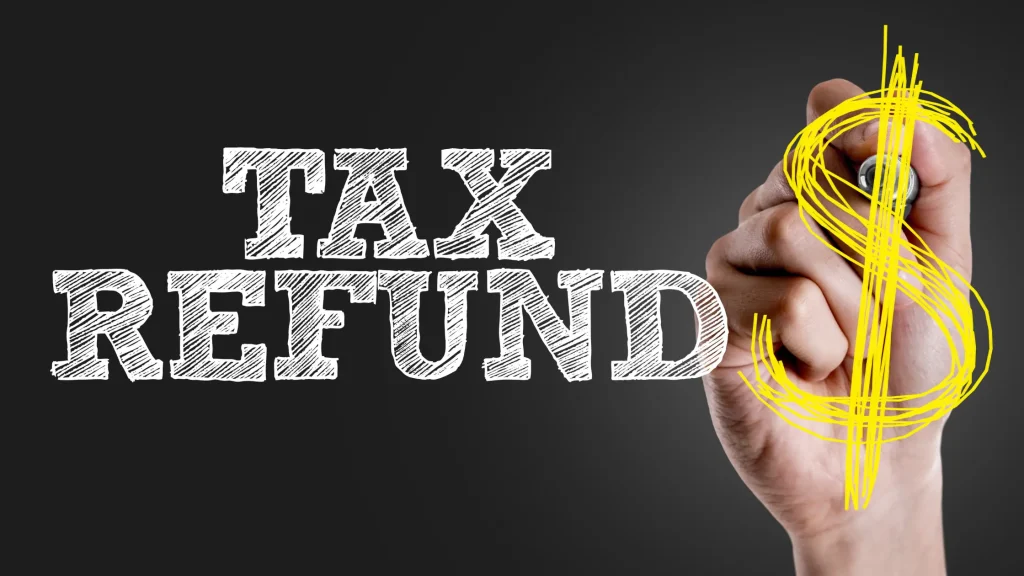HMRC Tax Refunds: A Complete Guide On Claiming Tax Rebate In The UK

The UK government offers several tax refunds and allowances for taxpayers, depending on their employment status or personal circumstances. Sometimes, you can get charged the wrong amount of income tax after changing a job or taking a break from work, which means that you may be eligible for a rebate and other refunds that you are entitled to.
This article is a complete guide on how you can claim a tax refund from the HMRC and under what circumstances it is possible to receive a rebate.
What is a Tax Rebate?
A tax rebate is when the government returns excess tax paid by an individual or a business. It occurs when a taxpayer has overpaid their taxes during the year, whether through withholding from paychecks or estimated tax payments.
It can take the form of a cash payment from the government or a credit against future taxes owed. Tax rebates are sometimes issued as part of government stimulus efforts or specific tax relief programs.
The UK tax year runs from April 6 of the current year until April 6 of the next year. At the end of each tax year, the HM Revenue & Customs (HMRC) calculates whether you have paid the right amount of tax. Typically, rebates from the HMRC are issued automatically, but you can claim one if you believe that you have overpaid taxes.

How Does the HMRC Calculate Your Tax Obligation?
When calculating your tax obligations, the HMRC takes into account the income source(s), deductions, and tax allowances. Here is an overview of the process involved:
- Determining Taxable Income: The HMRC calculates all sources of your income, such as wages, self-employment income, rental income, dividends, interest, and pensions.
- Allowances and Deductions: As a taxpayer, you can benefit from personal allowances, which allow you to earn up to a certain amount tax-free. The taxable income of an individual is reduced if they earn a pension or when making charitable donations.
- Tax Bands: The UK employs a progressive tax system where different portions of your income are taxed at varying rates. Here is the basic income tax band for the 2025-2026 tax year:
- Basic rate (20%) on income between GBP 12,751 and 50,270.
- Higher rate (40%) on income above the basic rate threshold, between GBP 50,271 and 150,000.
- Additional rate (45%) on income above the higher rate threshold of GBP 150,000.
- Calculate Tax Due: HMRC calculates the total taxes owed by an individual or business after determining the taxable income and applying the appropriate chargeable rates.
- Tax Credits and Overpayments: If you have already paid your taxes through the PAYE (Pay As You Earn) system, or have other tax credits, then these amounts are subtracted by the HMRC from the calculated tax due.
- Filing Returns: Self-employed individuals or those with more complex tax situations may need to file a Self-Assessment tax return that details their income and any potential deductions.
- Payment: Once determined by the HMRC, you are obligated to pay taxes. There will be a deadline that is applied based on the taxpayer classification you fall under – employed, self-employed, or business.
Under what Conditions can you get a Tax Rebate in the UK?
If you are a taxpayer in the UK, then you may be eligible to claim a tax rebate under the following conditions:
- Overpayment of Tax: If you have paid more tax than you owed on your income, typically through PAYE, then you may claim a rebate. This can happen under two circumstances:
- You changed jobs, and your new employer has yet to update your tax code.
- You worked part-time or had periods of no pay during the tax year.
- Tax Code Errors: Income tax can be overpaid if your tax code is incorrect. You can check whether your tax code is accurate or request a correction if necessary to claim a rebate.
- Change of Circumstances: If your income circumstances have changed during the tax year, such as starting a new job or quitting an old one, receiving a promotion, or having a change in personal status, then you may have been overtaxed.
- Claiming Expenses: If you have incurred work-related expenses, such as uniforms, tools, or travel expenses, that qualify for tax relief and you haven’t been reimbursed for them, then you can claim a rebate.
- Self-Assessment: If you are self-employed and have overpaid when filing your Self-Assessment tax return, then you are eligible to claim a rebate for the excess amount.
- Transitioning between Tax Years: If you have tax reliefs or allowances that were applicable in one tax year but not in the next, then you may have overpaid your taxes.
- Pension Contributions and Charity Donations: If you are a pension contributor and your payments were not taken into account when the HMRC calculated your tax, then you are entitled to a refund.
- Venture Capital Investments: If you have invested in government commerce programs like the Enterprise Investment Scheme (EIS) and have not received the appropriate tax relief, then you are eligible to claim a rebate.
How to Claim a Tax Rebate in the UK?
Follow these steps to claim your tax rebate in the UK:
- Check Eligibility: Make sure that you are eligible for a rebate from overpaid taxes, incorrect tax code, work-related expenses, or other qualifying circumstances.
- Gather Information: Collect relevant documentation, such as form P60 and P45, payslips, records of expenses, and details of your tax code.
- Determine your claim based on Employment: If you are an employee currently out of a job or someone trying to claim for the previous tax year, then you can file a form P50 to earn a rebate. If you are still employed, then you can visit the HMRC website or call the agency directly to make your claim. If you are self-employed, file a Self-Assessment tax return online or via paper form. Calculate your tax due and adjust for overpayments before claiming the rebate.
- Claiming Work-Related Expenses: When claiming a rebate for employment expenses, you can either apply on the HMRC website or submit a form P87 to claim tax relief on costs borne by you but not reimbursed by your employer.
- Submit Your Claims: Complete the necessary paper form or online applications and review the details for accuracy. Make sure that you have included all the relevant information to support your claims, including your National Insurance Number.
- Await the HMRC’s Response: HMRC will review your claim and inform you if your rebate has been approved or rejected. The process may take a few weeks to be completed, so remaining patient is key.
- Receive your Rebate: If the claim is approved, you can expect the rebate to be received via bank transfer or as a check.
- Keep Records: Maintain copies of your claims and any correspondence with the HMRC for your reference.
How Much Can You Expect as a Tax Rebate?
The amount you can receive as a tax rebate depends on the following factors:
- Amount Overpaid: The HMRC determines the tax amount you have overpaid based on your income, tax code, and any deductions or allowances that you may be eligible for.
- Income Tax Rate: The tax rebate amount depends on your yearly income tax bands, with a basic rate (20%) charged for income between 12,751 GBP and 50,270 GBP; a higher rate (40%) for income between 50,271 GBP and 150,000 GBP; and an additional tax rate (45%) for income over 150,000 GBP.
- Tax Year: Your tax situation can change each year, and if your employment or business circumstances led to overpayment during a specific tax year, then you would only receive a rebate for that period.
- Duration of Overpayment: If you have been overpaying your taxes over multiple tax periods, then you may be due larger rebates for each year.
How to Calculate a Tax Rebate?
To get an estimate on your tax rebate, you can either use HMRC’s online tax rebate calculator or consult with a tax professional. If you suspect overpaid taxes, then it is helpful to gather your payslips and P60 forms to get a clear picture of how much refund to expect.
When and How Long Does it Take to Receive your Tax Refund?
At the end of each tax year, you should receive a tax calculation letter known as a form P800, which informs you of any refunds that you may be eligible for. The amount should be credited to your bank account within five working days of receiving the letter, or you can receive an HMRC cheque six weeks after the letter.
It is advisable to log into your personal tax account or the HMRC app and request the amount to be transferred to your bank account as soon as you receive a P800. If a request has not been placed by the taxpayer, then they will be sent a cheque within 21 days.
Under certain circumstances, the HMRC will send a cheque with no option for a direct online payment. Keep in mind that redeeming the rebate via cheque can take a lot longer than a bank transfer.
How to Claim a Tax Rebate if You Are Not in the UK or Leaving the Country?
You can apply for a tax rebate if you are planning to leave the UK and have already paid for the tax year. Eligible taxpayer categories for the refund are the following:
- Those who have lived and worked in the country
- Those who are leaving the country not to return
- Those who have worked overseas for at least one whole tax year
If eligible, you can submit a P85 form either on the HMRC website or by post, and the agency will pay the rebate amount to your bank account or via postal order after reviewing your case. However, a P85 is not necessary if you are filing a self-assessment tax return for the year during which you plan to leave the UK.
Final Thoughts
As a responsible taxpayer, you are required to maintain accurate financial records and stay updated on any changes to the UK’s tax laws or rates, as these can affect your overall tax obligations.
Crypto & Blockchain Expert
